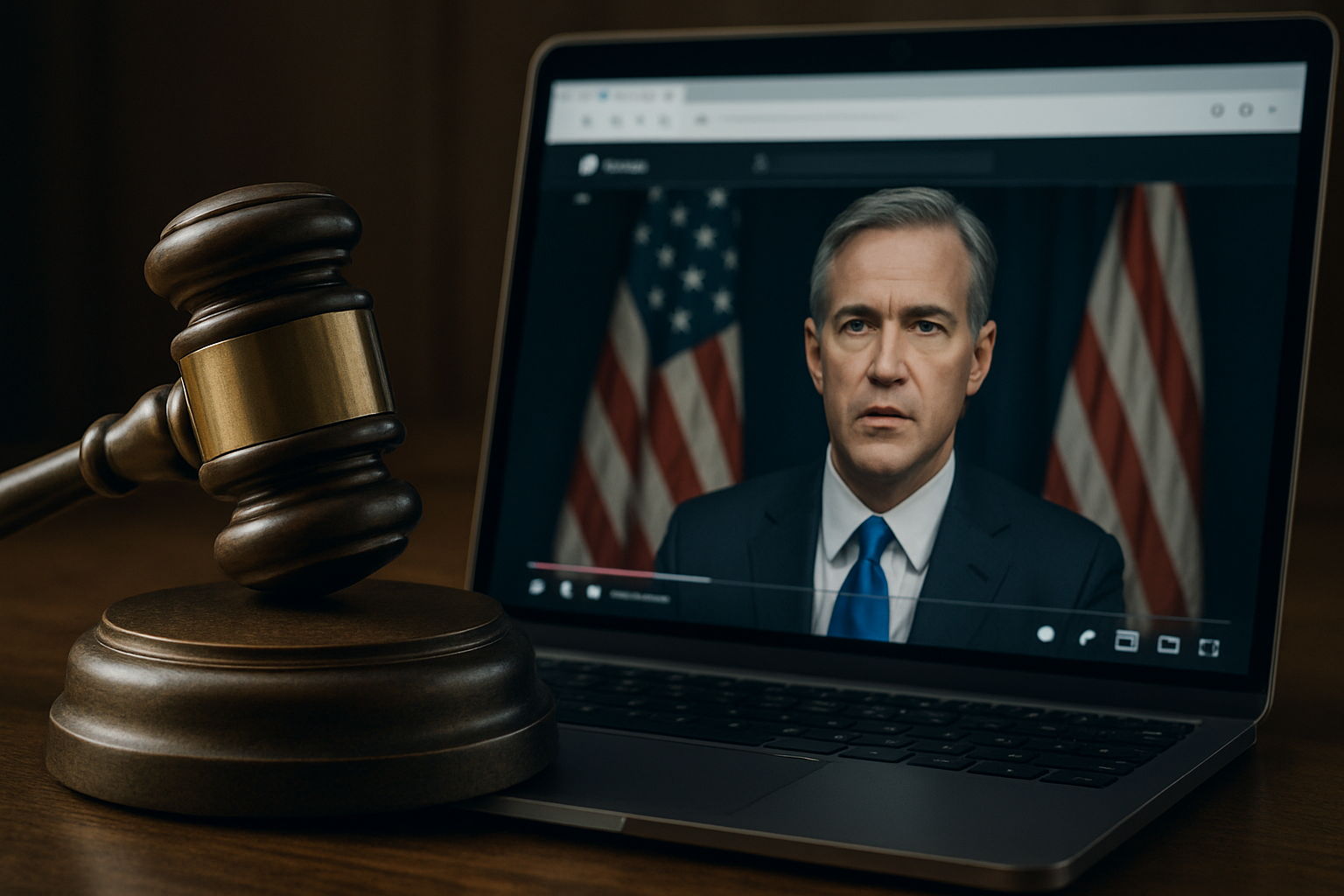Title: Legal Implications of Deepfake Technology in Political Campaigns
Introduction: As deepfake technology advances, its potential to manipulate political discourse grows, raising unprecedented legal challenges. This article explores the intricate legal landscape surrounding deepfakes in political campaigns, examining current regulations, potential reforms, and the delicate balance between free speech and electoral integrity.

Current Legal Framework
The existing legal landscape is ill-equipped to address the challenges posed by deepfakes in political campaigns. While some laws, such as defamation statutes and regulations against false campaign advertisements, can potentially be applied to deepfakes, they were not designed with this technology in mind. The Federal Election Commission (FEC) has yet to establish specific guidelines for dealing with deepfakes in political advertising. This regulatory gap leaves candidates, parties, and voters vulnerable to the potential misuse of this technology.
First Amendment Considerations
One of the most significant challenges in regulating deepfakes is balancing the need for electoral integrity with First Amendment protections. Political speech is afforded the highest level of constitutional protection in the United States, making any attempt to regulate deepfakes a delicate legal matter. Courts have historically been reluctant to restrict political speech, even when it contains falsehoods. This precedent complicates efforts to craft legislation that can effectively combat deepfakes without infringing on free speech rights.
Proposed Legislative Solutions
Several states have taken the initiative to address deepfakes in political contexts. California, for example, passed a law in 2019 making it illegal to distribute audio or video of a candidate with the intent to deceive voters within 60 days of an election. At the federal level, the Deepfake Task Force Act was introduced in 2021, aiming to create a comprehensive strategy for detecting and combating deepfakes. These legislative efforts highlight the growing recognition of the need for legal frameworks to address this emerging threat.
Technological Countermeasures and Legal Implications
As the legal system grapples with deepfakes, technological solutions are also being developed. Blockchain-based verification systems, digital watermarking, and AI-powered deepfake detection algorithms are among the proposed countermeasures. The legal implications of these technologies are significant. Questions arise about the admissibility of AI-detected deepfakes as evidence in court, the potential for false positives in detection systems, and the legal responsibilities of platforms that host political content.
International Perspectives and Cross-Border Challenges
The global nature of the internet means that deepfakes can be created and disseminated across borders, complicating legal enforcement. Different countries have varying approaches to regulating political speech and technology, creating a patchwork of laws that may be difficult to harmonize. International cooperation in developing standards for dealing with deepfakes in political contexts is crucial, but presents its own set of legal and diplomatic challenges.
The Role of Social Media Platforms
Social media platforms play a pivotal role in the spread of political information and, consequently, deepfakes. The legal responsibilities of these platforms in moderating and fact-checking political content are still being debated. Section 230 of the Communications Decency Act, which provides immunity to platforms for user-generated content, is central to this discussion. As pressure mounts for platforms to take more responsibility for the content they host, potential changes to this law could have far-reaching implications for how deepfakes are handled in political discourse.
Future Legal Landscape
As deepfake technology continues to evolve, so too must the legal framework surrounding it. Future legislation may need to address not only the creation and distribution of deepfakes but also the technology used to detect them. The development of a comprehensive legal approach will likely require a combination of new laws, technological solutions, and international cooperation. Balancing the need for electoral integrity with the protection of free speech will remain a central challenge in shaping this emerging area of law.
In conclusion, the legal implications of deepfake technology in political campaigns represent a complex and evolving challenge for lawmakers, courts, and society at large. As we navigate this new frontier, it is crucial to develop adaptive legal frameworks that can protect the integrity of political discourse while preserving fundamental democratic values. The coming years will be critical in shaping how our legal system responds to this powerful and potentially disruptive technology.





